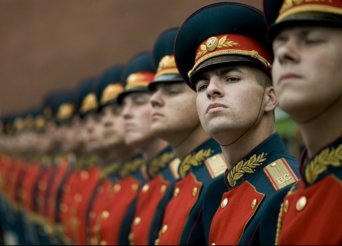- About
- Topics
- Picks
- Audio
- Story
- In-Depth
- Opinion
- News
- Donate
- Signup for our newsletterOur Editors' Best Picks.Send
Read, Debate: Engage.
| topic: | Election |
|---|---|
| located: | Russia |
| editor: | Igor Serebryany |
The Kremlin hinted on Monday that the Presidential Administration would sponsor a rock singer Sergei Shnurov and video blogger Yuri Dud as leaders of new political parties.
The elections to the Russian Parliament, State Duma, are set for 2021.
Sergei Shnurov, a native of Saint Petersburg and frontman of the Leningrad rock band, has been notorious for songs filled with obscenities. Despite being fined after live performances every time, the band keeps attracting tens of thousand of fans Russia-wide.
The Kremlin's intention to "monetise" Shnurov's popularity is nothing new, experts note. Russian authorities have been using these types of political tactics long enough to disperse the opposition electorate, they highlight.
Previously, the spoiler's role used to be played by the leader of the so-called Liberal Democratic party, Vladimir Zhirinovsky.
Yuri Dud and Sergei Shnurov could not be reached for comments. But Shnurov's fellow townsman, an expert in political communications in the St-Petersburg State University, Ikya Bykov believes that the singer's "political monetisation" could be a successful project.
"Shnurov hasn't been alien to politics. He commented on various political topics many times and he is not a stranger to the political elites. So it's not a crazy idea to render him a politician", Bykov says.
Those in the Presidential Administration understand it well that the Russian electorate has been sick and tired of traditional parties and their never-changing leaders. Building new dwarf parties with no chance of making it to the State Duma has only one objective - to create an illusion that political competition in Russia exists.
"The Kremlin follows the principle of the 'show must go on'. This is unimportant if hypothetical Shnurov's or Dud's parties score half per cent of the votes. This is like in sports, participation counts as such because it enhances voter turnout and so legitimises the election results", Bykov adds.
The technology of splitting electorate has successfully been used in Russia to destroy the left-wing political sector. In the early 2000s, several "Communist" parties were created to offset Gennady Zyuganov's powerful Communist Party of Russian Federation (CPRF). Those "emulative" parties had never received five per cent of ballots required to obtain the Duma seats but considerably axed the number of seats won by the CPRF.
In 2021, however, the Kremlin sees no danger of opposition parties to defeat the ruling United Russia party. "For example, the liberal parties have split its electorate in recent years with no Kremlin involvement. Their fractions have not the slimmest chance to make it into the parliament," Bykov notes. So why the fuss?
He stresses that if Shnurov will really lead a new party, he will spoil not the liberal democratic opposition but Zhirinovsky's LDPR party (which is Liberal Democratic in its name only).
"Shnurov's stage image is a lower-class pariah, so his party's image will likely be the same. But this is Zhirinovsky who's been playing the role of underprivileged people's advocate since the founding of his party in 1990. Taking into account that LDPR has been balancing on the brink of leaving the Duma at the next elections, Shnurov can present a real danger for Zhyrinivsky", the expert concludes.
The director of the Institute of the Modern State Development Dmitry Solonnikov (also form St-Petersburg) is certain that Shnurov can't challenge even the ageing LDPR's leader.
"I am thinking that the creation of Shnurov's or Dud's or whoever else's party is a piece of fake news, just to show that there is a party life in modern Russia. As of today, there are at least 70 dwarf parties registered in this country, so it makes no sense to set up another one or two", he says.
Solonnikov believes those parties can't even be spoilers, let alone play any independent role in the national political agenda. "To be a spoiler, a party must be able to take away a percentage of the votes from the party it's acting against. But all those 'sofa parties' have never scored even a hundredth of a per cent", he notes.
In Russian political slang, the "sofa party" is a joke term for the dwarf parties, where the few members can fit on one sofa. Russian legislators had given a green light to such "parties" in 2012 when the State Duma passed the law requiring a party to have only 500 members to be registered.
Image: WikiImages / Pixabay
